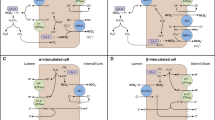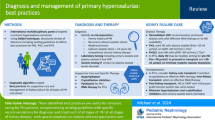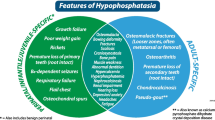Summary
Homozygous deficiency of a purine salvage enzyme, adenine phosphoribosyltransferase (APRT), causes urolithiasis and renal failure. There are two known types of homozygous APRT deficiencies; type I patients completely lack APRT activity while type II patients only partially lack such activity. All type II patients possess at lest one APRT*J allele with a substitution from ATG (Met) to ACG (Thr) at codon 136. Type I patients are considered to possess two alleles (APRT*Q0) both of which code for complete deficiencies. Thus, some patients with type II APRT deficiencies may have a genotype of APRT*J/APRT*Q0. As no individuals with such a genotype have previously been identified, we performed extensive analysis on four members of a family by (1) the T-cell method for the identification of a homozygote, (2) the B-cell method for the identification of heterozygotes, and (3) oligonucleotide hybridization after in vitro amplification of a part of genomic APRT sequence for the identification of APRT*J and nonAPRT*J alleles. We report here the first evidence that 2,8-dihydroxyadenine urolithiasis developed in a boy aged 2 years with a genotype of APRT*J/APRT*Q0.
Similar content being viewed by others
References
Cartier P, Hamet M (1974) Une nouvelle maladie métabolique: le déficit compléte en adenine-phosphoribosyltransferase avec lithiase de 2,8-dihydroxyadenine. C R Acad Sci (Paris) 279:883–886
Dush MK, Sikela JM, Khan SA, Tischfield JA, Stambrook PJ (1985) Nucleotide sequence and organization of the mouse adenine phosphoribosyltransferase gene: presence of a coding region common to animal and bacterial phosphoribosyltransferases that has a variable intron/exon arrangement. Proc Natl Acad Sci USA 82:2731–2735
Fujimori S, Akaoka I, Sakamoto K, Yamanaka H, Nishioka K, Kamatani N (1985) Common characteristics of mutant adenine phosphoribosyltransferases from four separate Japanese families with 2,8-dihydroxyadenine urolithiasis associated with partial enzyme deficiencies. Hum Genet 71:171–176
Glicklich D, Gruber HE, Matas AJ, Tellis VA, Karwa G, Finley K, Salem C, Soberman R, Seegmiller JE (1988) 2,8-dihydroxyadenine urolithiasis: report of a case first diagnosed after renal transplant. Q J Med 69:785–793
Hakoda M, Nishioka K, Kamatani N (1990) Homozygous deficiency at an autosomal locus aprt in somatic cells in vivo induced by two different (germinal-somatic and somatic-somatic) mechanisms. Cancer Res 50:1738–1741
Hershey HV, Taylor MW (1986) Nucleotide sequence and deduced amino acid sequence of Escherichia coli adenine phosphoribosyltransferase and comparison with other analogous enzymes. Gene 43:287–293
Hidaka Y, Tarle SA, Kelley WN, Palella TD (1987a) Nucleotide sequence of the human APRT gene. Nucleic Acids Res 15:9086
Hidaka Y, Palella TD, O'Toole TE, Tarle SA, Kelley WN (1987b) Human adenine phosphoribosyltransferase. Identification of allelic mutations at the molecular levels as a cause of complete deficiency of the enzyme. J Clin Invest 80:1409–1415
Hidaka Y, Tarle SA, Fujimori S, Kamatani N, Kelley WN, Palella TD (1988) Human adenine phosphoribosyltransferase deficiency: demonstration of a single mutant allele common to the Japanese. J Clin Invest 81:945–950
Kamatani N, Takeuchi F, Nishida Y, Yamanaka H, Nishioka K, Tatara K, Fujimori S, Kaneko K, Akaoka I, Tofuku Y (1985) Severe impairment in adenine metabolism with a partial deficiency of adenine phosphoribosyltransferase. Metabolism 34:164–168
Kamatani N, Terai C, Kuroshima S, Nishioka K, Mikanagi K (1987a) Genetic and clinical studies on 19 families with adenine phosphoribosyltransferase deficiencies. Hum Genet 75:163–168
Kamatani N, Kuroshima S, Terai C, Kawai K, Mikanagi K, Nishioka K (1987b) Selection of human cells having two different types of mutations in individual cells (genetic/artificial mutants)-application to the diagnosis of the heterozygous state for a type of adenine phosphoribosyltransferase deficiency. Hum Genet 76:148–152
Kamatani N, Sonoda T, Nishioka K (1988) Distribution of the patients with 2,8-dihydroxyadenine urolithiasis and adenine phosphoribosyltransferase deficiency in Japan. J Urol 140:1470–1472
Kamatani N, Kuroshima S, Terai C, Hidaka Y, Palella TD, Nishioka K (1989) Detection of an amino acid substitution in the mutant enzyme for a special type of adenine phosphoribosyltransferase (APRT) deficiency by sequence specific protein cleavage. Am J Hum Genet 45:325–331
Kamatani N, Kuroshima S, Hakoda M, Palella TD, Hidaka Y (1990) Crossovers within a short DNA sequence indicate a long evolutionary history of the APRT * J mutation. Hum Genet 85 (in press)
Lowry OH, Rosebrough NJ, Farr AL, Randall RJ (1951) Protein measurement with the Folin phenol reagent. J Biol Chem 193:265–275
Saiki RK, Gelfand DH, Stoffel S, Sharf SJ, Higuchi R, Horn GT, Mullis KB, Erlich HA (1988) Primer-direct enzymatic amplification of DNA with a thermostable DNA polymerase. Science 239:487–491
Simmonds HA, Sahota AS, Van Acker KJ (1989) Adenine phosphoribosyltransferase deficiency and 2,8-dihydroxyadenine lithiasis. In: Scriver CR, Beaudet AL, Sly WS, Valle D (eds) Metabolic basis of inherited disease, 6th edn. McGraw-Hill, New York, pp 1029–1044
Stambrook PJ, Dush MK, Trill JJ, Tischfield JA (1984) Cloning of a functional human adenine phosphoribosyltransferase (APRT) gene: Identification of a restriction fragment length polymorphism and preliminary analysis of DNAs from APRT-deficient families and cell mutants. Somat Cell Mol Genet 10:359–367
Steglich C, DeMars R (1982) Mutations causing deficiency of APRT in fibroblasts cultured from humans heterozygous for mutant APRT alleles. Somat Cell Genet 8:115–141
Thomas CB, Arnold WJ, Kelley WN (1973) Human adenine phosphoribosyl transferase. J Biol Chem 319:2529–2535
Wilson JM, Daddona PE, Simmonds HA, Van Acker KJ, Kelley WN (1982) Human adenine phosphoribosyltransferase: immunochemical quantitation and protein blot analysis of mutant forms of the enzyme. J Biol Chem 257:1508–1515
Author information
Authors and Affiliations
Rights and permissions
About this article
Cite this article
Kamatani, N., Kuroshima, S., Yamanaka, H. et al. Identification of a compound heterozygote for adenine phosphoribosyltransferase deficiency (APRT*J/APRT*Q0) leading to 2,8-dihydroxyadenine urolithiasis. Hum Genet 85, 500–504 (1990). https://doi.org/10.1007/BF00194224
Received:
Revised:
Issue Date:
DOI: https://doi.org/10.1007/BF00194224




